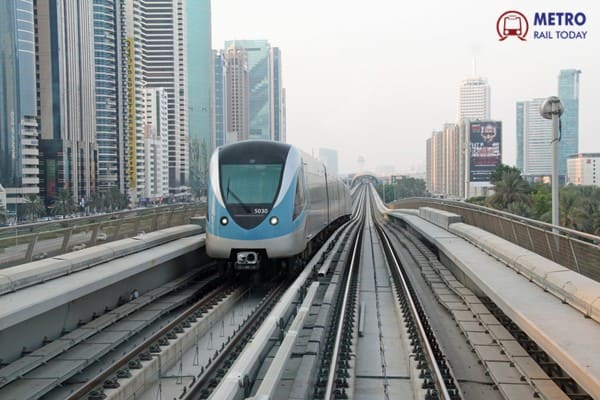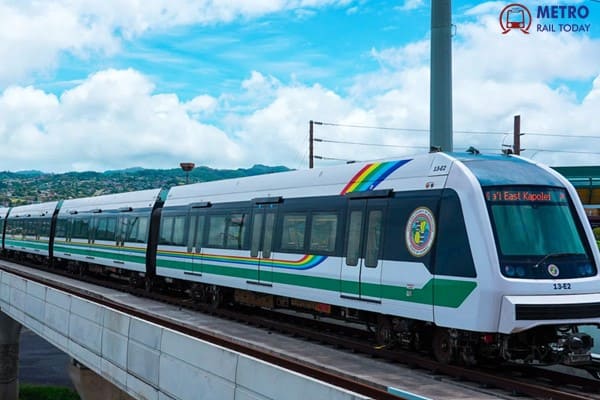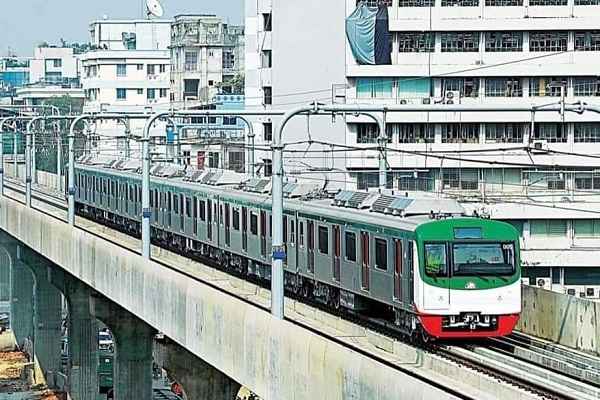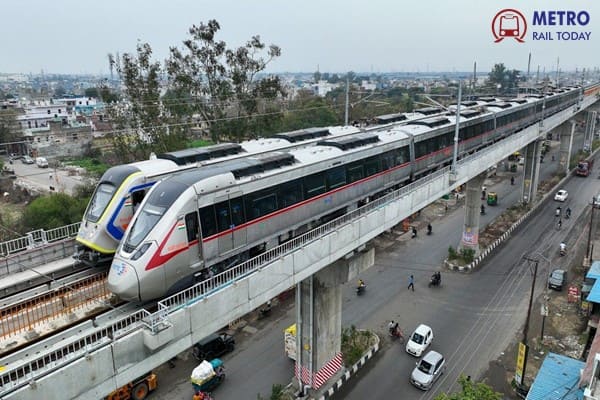 NCRTC installs India’s First “Solar on Track” in a Metro or RRTS System
NCRTC installs India’s First “Solar on Track” in a Metro or RRTS System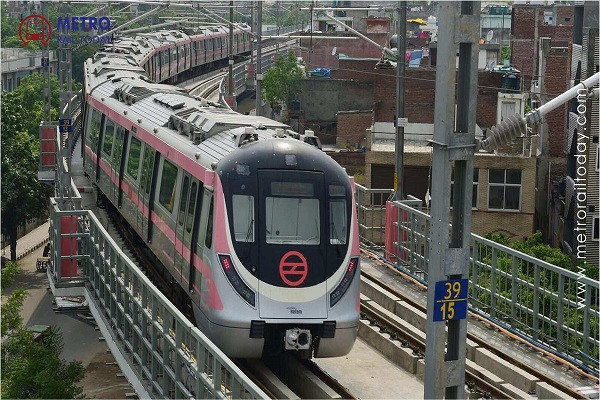 Delhi Metro to expand 450 km network by 2027, Take 10.9 lakh Vehicles Off Roads Daily by 2031
Delhi Metro to expand 450 km network by 2027, Take 10.9 lakh Vehicles Off Roads Daily by 2031 Hitachi Rail bags Automatic Fare Collection System Contract for Bangalore Metro Phase 2
Hitachi Rail bags Automatic Fare Collection System Contract for Bangalore Metro Phase 2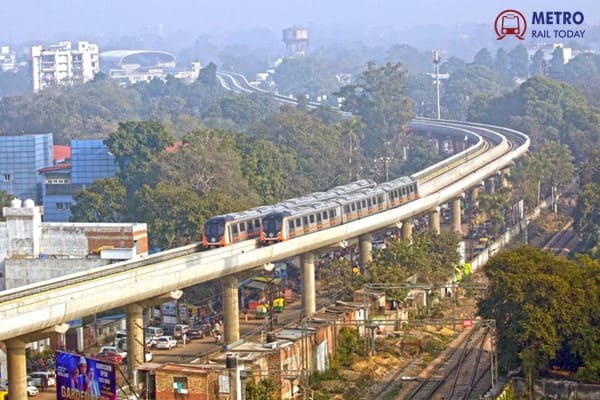 Efkon India bags ₹164 crore contract for Electrical & Mechanical works of Kanpur Metro Line 2
Efkon India bags ₹164 crore contract for Electrical & Mechanical works of Kanpur Metro Line 2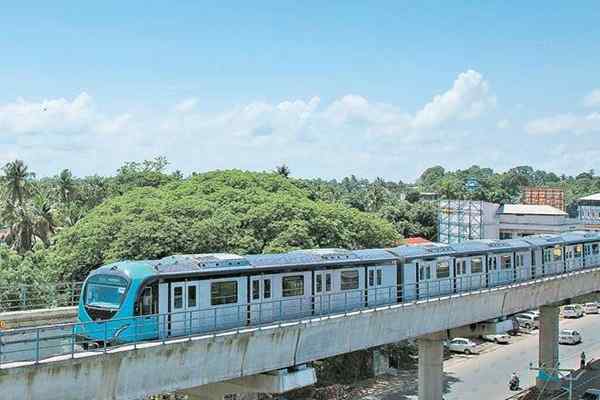 Kochi Metro Pink Line likely to begin Operations by June 2026
Kochi Metro Pink Line likely to begin Operations by June 2026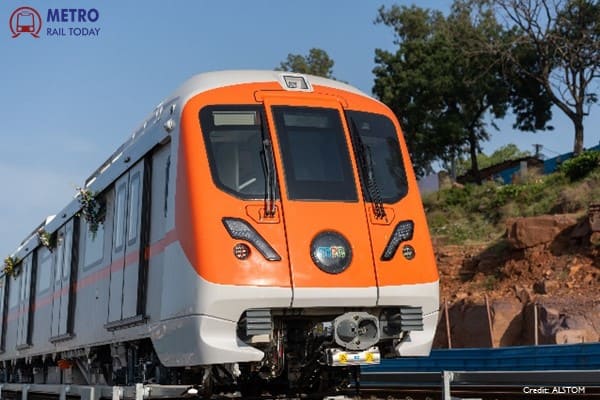 Bhopal Metro Phase 1 Cost Escalates to ₹10,033 Crore — 43% Higher Than Original Estimate
Bhopal Metro Phase 1 Cost Escalates to ₹10,033 Crore — 43% Higher Than Original Estimate India to add over 300 Kilometres of New Metro and Regional Rail Network by 2026
India to add over 300 Kilometres of New Metro and Regional Rail Network by 2026 Maharashtra to launch Unified Metro Rail Authority for Mumbai Metropolitan Region
Maharashtra to launch Unified Metro Rail Authority for Mumbai Metropolitan Region India charts the future of Urban Transport at UMI 2025: Mobility as the Backbone of Development
India charts the future of Urban Transport at UMI 2025: Mobility as the Backbone of Development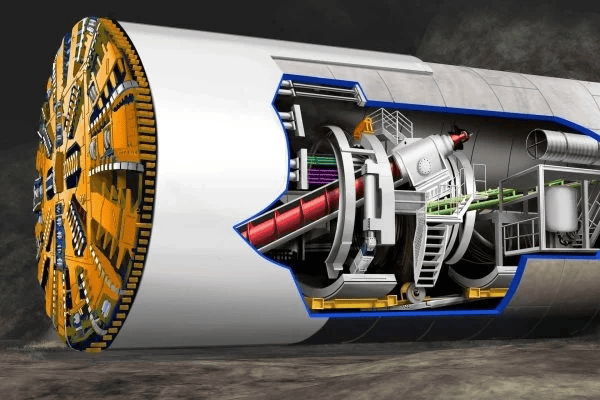 Herrenknecht to establish India's Largest TBM Manufacturing Facility in Chennai
Herrenknecht to establish India's Largest TBM Manufacturing Facility in Chennai
Alstom rolls out first Flexity 2 Tram for Melbourne’s Next-Gen G Class Fleet
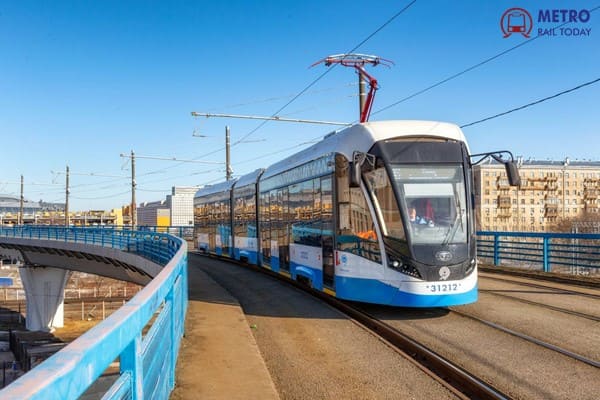 (Representative Image)
(Representative Image)
Melbourne, Australia (Metro Rail Today): In a significant milestone for Australia’s urban mobility, Alstom has produced the first Flexity 2 tram for Melbourne’s next-generation G Class fleet, marking the beginning of a new era in sustainable, efficient, and passenger-centric public transport.
The newly built three-car low-floor G Class tram will undergo rigorous testing on a purpose-built test track at the Maidstone Tram Depot, followed by trial operations across Melbourne’s iconic tram network. The official launch is expected in early 2026.
Each 25-meter-long tram features two pivoting end bogies and one central non-pivoting bogie, ensuring smoother rides and reduced track wear. The pivoting bogies are powered by two 105 kW traction motors supplied by Škoda Electric. Designed with passenger comfort in mind, the tram offers space for 150 passengers, including 48 seated, with wide aisles, level boarding, and improved accessibility features.
Alstom received the order for 100 Flexity 2 trams in 2022, and a mock-up of the head car was unveiled in 2023. The vehicles are being assembled locally at Alstom’s Dandenong facility with an impressive 65% localisation rate, reinforcing the company’s commitment to supporting Australia’s manufacturing ecosystem.
The AUD 1.85 billion (USD 1.2 billion) contract also includes a 15-year maintenance agreement to ensure operational reliability and lifecycle efficiency. To support the new fleet, Alstom has constructed a state-of-the-art tram depot in Maidstone, tailored to meet future operational and sustainability standards.
“The rollout of the first Flexity 2 tram is a testament to Alstom’s commitment to delivering world-class, eco-friendly mobility solutions that enhance the passenger experience and strengthen local industry capabilities,” said Mrs. Mamta Shah, MD & CEO of Urban Infra Group and Managing Editor of Metro Rail Today. “Melbourne’s G Class trams exemplify how innovation, sustainability, and local manufacturing can come together to redefine public transport for the next generation.”
With Melbourne already operating the world’s largest tram network, the introduction of the Flexity 2 G Class fleet is set to boost efficiency, reliability, and comfort—cementing the city’s leadership in modern light rail mobility.





